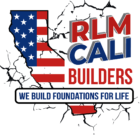Causes that might result to foundation issues.
Drought or flood
The loss of moisture makes the soil more porous, like a sponge. There will be a space between the soil and the structure supporting your home. Having some wiggle room at the base is made possible by this chasm. If the foundation of a house is not properly supported, fractures can form and develop, putting the structure at risk of collapse. When there’s too much water in the soil, it expands and can’t support your home’s foundation.
Earthquakes
In the event of an earthquake, the ground beneath your home will shake, causing it to shift. Fortunately, earthquakes are not particularly common in this section of the United States; hence, locals should not freak out at the slightest hint of a tremor. Keep in mind that without sufficient support or stabilization, the foundation can shift, dry out, and break. While a moderate earthquake might not cause any new cracks, it could make the ones that are already there much worse.
Storms Natural disasters like hurricanes and nor’easters, as well as regular rainstorms, can inflict substantial damage to your home’s foundation because of the large amounts of water they transport into the atmosphere. The soil around your house’s base may expand if there’s too much water in the area. When the soil heats up and expands, it pushes upward on the building, putting stress on the concrete foundation until it cracks. Your home’s framework is at risk of serious damage if you don’t take measures to safeguard it from storms. Many people assume that the freeze-thaw cycle, which occurs primarily during the winter months, is the main reason why concrete foundations eventually crack. When the temperature drops below about 18 degrees, concrete begins to freeze, and when the temperature rises beyond about 35 degrees, concrete begins to melt and crack.
The Pipes Are Drilling
By inspecting your plumbing system thoroughly, you can make sure that all of your pipes are properly attached and not dripping. Water will collect in the soil surrounding a house if there isn’t a sump pump or another mechanism to move the water away from the structure. Because of this, the earth will expand, putting stress on the structure’s base.
Flooding
If there is an excessive amount of water, whether from a storm, a leak, poor drainage, or any other source, it will eventually cause problems with the concrete foundation of your home. There will be more leaks, cracks, and other structural problems with the foundation of your home if the hydrostatic pressure around it is too high.
Extremely Cold Conditions
If concrete is left in the hot, sunny weather, it will expand and become more brittle. After a day in the sun, the concrete will have expanded, but after the sun goes down, it will return to its original, unbaked state.
Get in touch with the knowledgeable staff at the RLM Retrofit Foundation if you are thinking about taking preventative steps or if you find that your concrete needs to be repaired. You will have the ability, with their assistance, to place an order for the formulation of a treatment that is adapted especially to meet your requirements. Book a Foundation Inspection Chino with us now.










